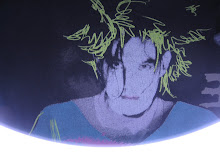Rereading an interview with Walter Mignolo from 2007, I came upon a name that had been kicking around my subconscious for a while, and one I’ve yet to maintain a clear sense of – Kishore Mahbubani.
Long-time member of Singapore’s Foreign Service and a key thinker within the framework of the ruling class, Mahbubani’s face should be familiar to many, as he writes prolifically and appears regularly across the media circus on a range of politically-based and current events programs. Perhaps his most well-known book Can Asians Think? is a series of essays which attempts to set out an “Asian” (or Singaporean) conception of society and politics—a general worldview that is to run counter to constructs of Western imperialism and the remnants of colonialism.
It is this claim by Mahbubani that creates my first stumbling block. After pouring through this book and related articles, and watching a dozen or so interviews with him, it certainly appears that what Mahbubani is advocating is not actually a different -- an “other” -- an “Asian” way of conceiving of progress and modernization, but instead that he is justifying a hyper form of capitalism and governmental control that is based directly on Western models, with the only real difference being the alteration in location and the speed with which the modernization has taken place. Democracy with Singaporean characteristics, to take from Deng.
Having taken its independence in 1965, Singapore has been an unrivaled economic success story—balancing a multi-ethnic population, sometimes overtly hostile neighboring states, and an extremely vulnerable and limited set of natural resources—perhaps seen most acutely in its reliance on the state of Johor for drinking water. With a very restricted landmass of just under 650-square kilometers, and a population of approximately 4 million, Singapore’s story over the past 40 years has been a distilled version of the Taiwan experience, where Martial Law was a stated necessity en route to a modern and more democratically leaning state.
A related question that arises is exactly what level of economic progress must be reached before government restrictions on press freedoms are lifted; before Singapore distances itself from the Chinese government’s definition of human rights; before a broader range of political freedoms are allowed? And who, within Singapore, is asking for this change?
The brief and unnuanced answer to all of these is no time soon, as long as Mahbubani remains one of the architects of the current regime. Throughout his essays Mahbubani attacks the idea of a free press as being an ultimately flawed and dangerous entity. In his essay on “An Asian Perspective on Human Rights and Freedom of the Press,” his very tendentious logic posits that because the Philippines (of all the ASEAN bloc) has the freest press, and because the Philippines continues to have difficulty modernizing, that the free press has both failed and, in part, led directly to this failure—that a free press is not “sufficient condition” for “progress.”
Mahbubani is certainly correct in stating that a free press alone will not bring about change, but a free press has been a major component of many “developing” nations. Elsewhere Mahbubani writes that “A free press need not lead to a well-ordered society.” Again, fine, yes—but who is making the claim that one component of a society will be able to bring about societal transformation without a range of other coordinating factors? There is a reason for the plural—The Bill of Right(s); Check(s) and Balance(s), Branche(s) of government.
Is there a baser form of free press that exists on gossip rather than news; do personal axes sometimes win out over objectively reported editorial content—of course, but to expect a free press to exist in a puritanically Orwellian vacuum is to erase the human factor from the equation, and to claim that there is a possible causal relationship between a more aggressively free press and increasingly bad government seems a ludicrously undergraduate claim. Though perhaps everything can be reduced to one statement by Mahbubani:
“It is necessary for a developing society to first succeed in economic development before it can attain the social and political freedoms found in the developed societies.”
So again, just how developed does Singapore’s economy need to be? At what point will Mahbubani drop the rhetoric and just speak? When does he stop answering questions about press freedoms and elections with discussions of JFK airport’s “third world” status or the upcoming repair work necessary on the Tappan Zee Bridge? The man can obviously think, but when considering economies of scale, I would hope that he would be more concerned with the potentially devastating issue of the Three Gorges project than with a few cracks in a suburban NYC bridge.
